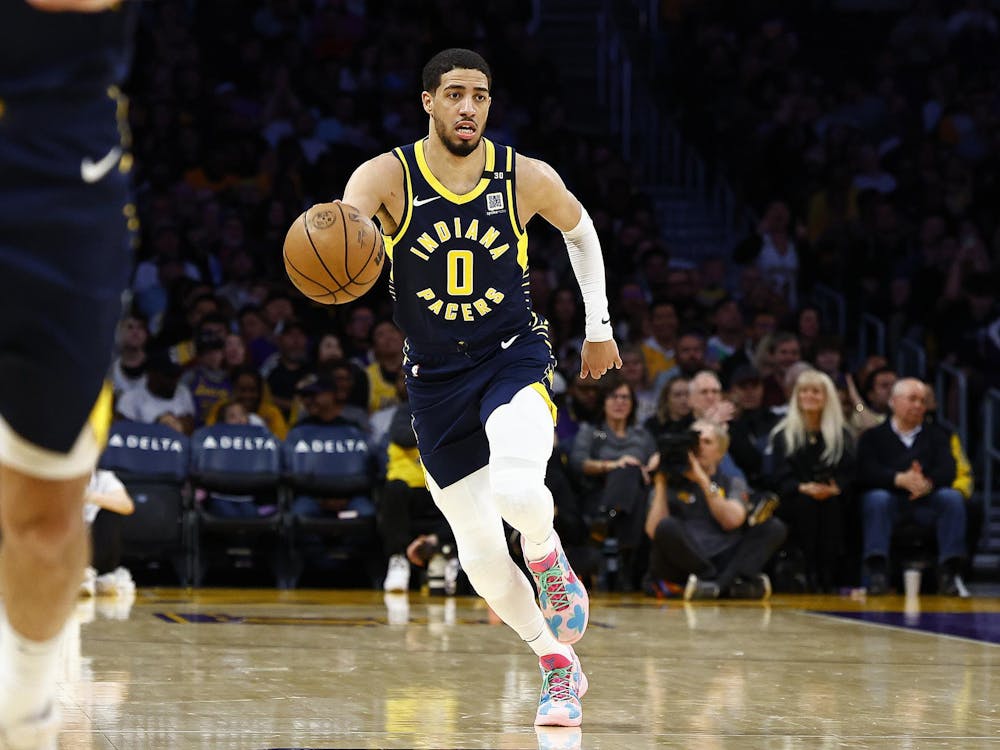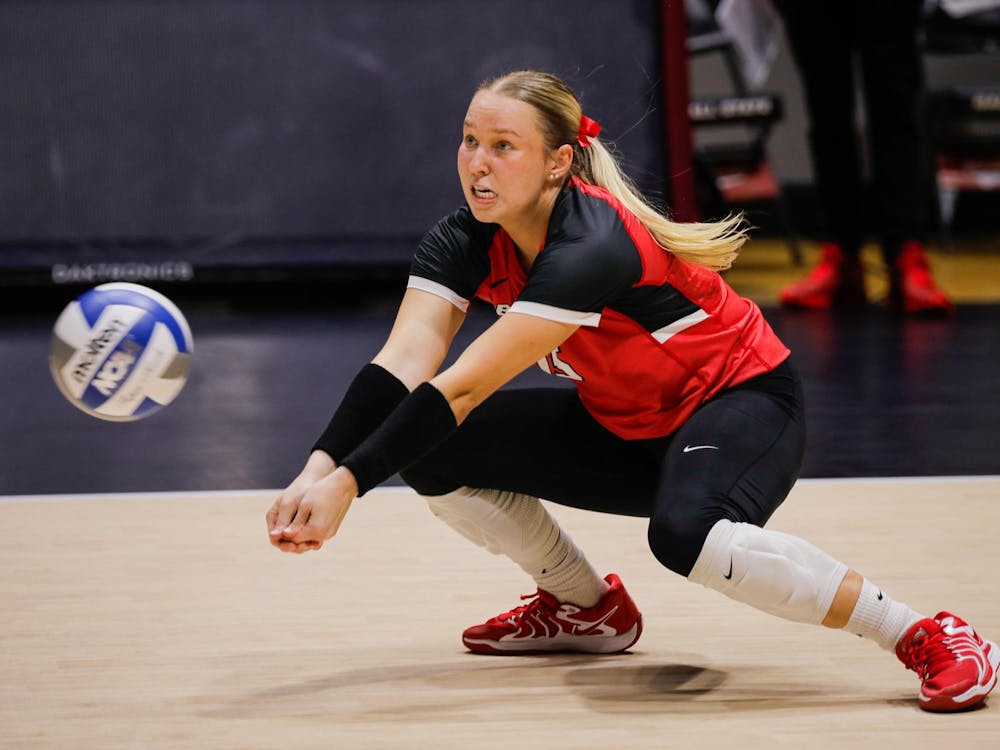As Madaris Grant stands in his gray Ball State football shirt and black shorts at practice, his role with the team isn't immediately clear.
He looks like a player, one with an air of experience that could help the young, struggling Cardinals. But he isn't wearing pads or a helmet.
He is dressed like the injured Cardinals, the ones out for the season. But he doesn't limp around Scheumann Stadium and has no use for crutches.
He acts like a coach, helping Ball State's tight ends prepare for the weekend's opponent. But he looks too young for that, much closer to the players than even the youngest assistants.
In truth, Grant lies in a netherworld, holding all of these roles, at least in part. The roster lists him as a student coach, but he has meant far more to Ball State than those two words imply.
"To go through what he's been through and to come out of it the way he's come out of it and mentored these guys," coach Stan Parrish said, trailing off.
Grant is taking a nonchalant attitude to being honored Saturday with the 16 other seniors.
"It might be nice for my mom or something," he said.
It is left to Parrish to sum up Grant's impact.
"I'll miss him when he leaves," Parrish said. "I missed him when he left the field in that North Texas game."
The player
Grant has not played a game for Ball State in almost two seasons. The last time he appeared in a game was 2009 opening night against North Texas.
It was Grant's fifth year at Ball State, his senior year. He had been named co-captain by his teammates, which he said was a testament to the hard work he put in during the offseason.
With the graduation of All-Mid-American Conference tight end Darius Hill, Grant would be expected to step into a greater role for the Cardinals. As a junior, Grant had averaged 1.9 receptions per game and gained 285 yards. Those numbers were expected to increase as he switched from mostly a run-blocker to more of a pass-catcher.
The plan wouldn't last long before things went awry.
The injury
No one was quite sure when it happened, but sometime in the first quarter against North Texas, Grant tore his ACL. Parrish said Grant may have played another series after the injury.
It was a critical loss for the Cardinals. They didn't have much depth at the position, and plans to redshirt freshman Zane Fakes were quickly scrapped. It forced Parrish to rework a large part of Ball State's offense and find a way to replace the leadership Grant provided on the field.
"They told me Grant was out," Parrish said last year. "That's like saying the electricity doesn't work anymore."
The decision was quickly made to apply for a medical redshirt for Grant. Parrish was optimistic Grant would receive a sixth year of eligibility, even after running back MiQuale Lewis was granted his medical redshirt in February and the process for Grant dragged on.
Winter came and went. Spring Practice opened and closed. Students went home after finals in May.
At the end of June, Grant's appeal was officially denied by the NCAA. Getting a sixth year is rare, usually requiring two separate injuries that cause the player to miss a season. Grant suffered just one, sitting out his first year as a traditional redshirt.
When Ball State announced the NCAA's ruling, Parrish named Grant to his coaching staff as a student coach.
"I think he's had fun doing it," Parrish said. "I'm really glad I gave him the opportunity."
The coach
When Parrish added Grant to his staff, no one knew how important having an extra tight end coach around would be. With the Cardinals down to their fourth tight end, it is painfully obvious.
After Grant was ruled out, Fakes was clearly the starter. He was lost for the year with a torn ACL at Iowa. That elevated freshman Aaron Mershman, who was converted to the position from quarterback during the summer. The redshirt freshman suffered a concussion against Akron and missed last week's game. Mershman's injury put David Schneider into the starting role. He was supposed to redshirt this season, but he caught the game-winning pass against Akron.
Grant said his injury helped show him all the backups have to be ready to play.
"I've been trying to teach every guy the same," he said. "I know from personal experience. When I got hurt, we had a freshman tight end step in."
Defensive end Robert Eddins said he can tell Grant has been teaching the tight ends. Eddins remembers how hard it was to face Grant in practice, and now Eddins sees some of the same techniques Grant used showing up in the younger Cardinals.
"It's kind of funny and ironic to see him coaching guys," Eddins said. "Going against him was very rough and now I see some of the same techniques he used. We always joke about it."
The future
Despite the setbacks, Grant isn't ready for his football career to be over yet. He has continued training in hopes of playing professionally after the season.
He said scout team quarterback Brooks Medaris often throws him passes so he can keep his hands sharp. He has continued to lift weights and work out, waiting for another chance to play football.
"I feel like I will get the opportunity to get a shot to play again," Grant said. "I'm working everyday because I know how hard it is for guys just coming out to get a shot, let alone a guy who's been out for a year, now trying to get back in."
So far it's been working. Grant said he has talked with NFL teams and teams from the United Football League, a professional league in its second year, though he declined to talk about specifics.
If the pros don't work out for him, Grant said he hopes to continue coaching, maybe even at Ball State. After all, he's been here for six years. Ball State has become a special place for Grant, one that he will remain close to long after Saturday's ceremonies.
"This is like home for me," Grant said. "When you think of Senior Night, you think of somebody leaving. They can't get rid of me."




